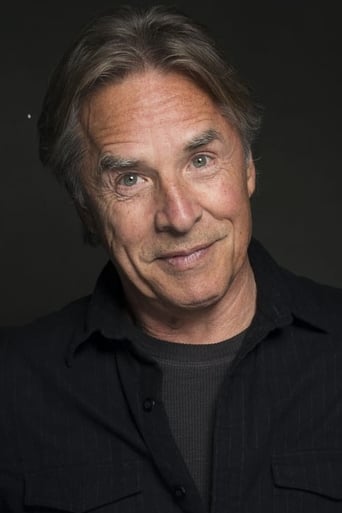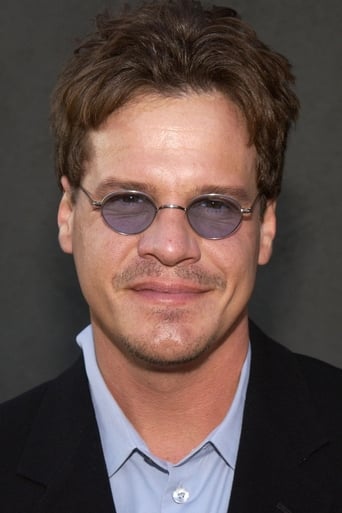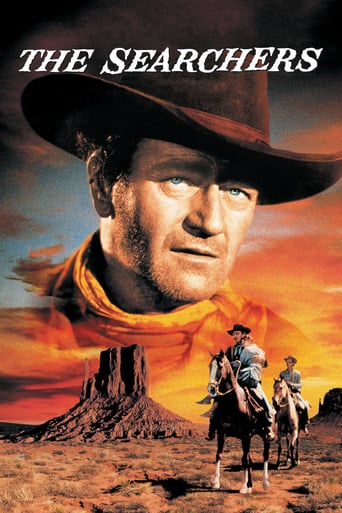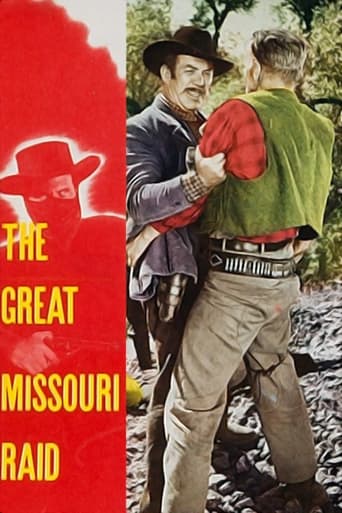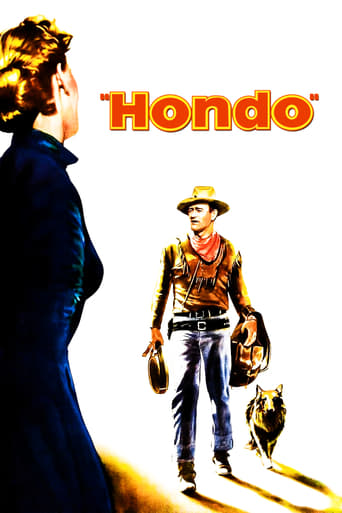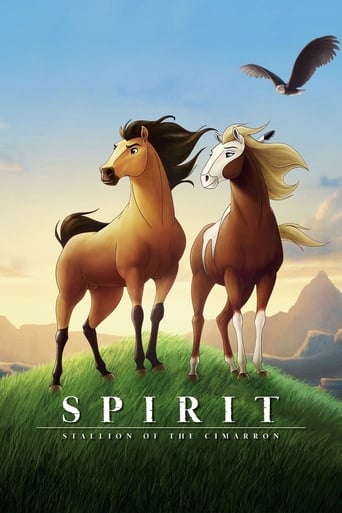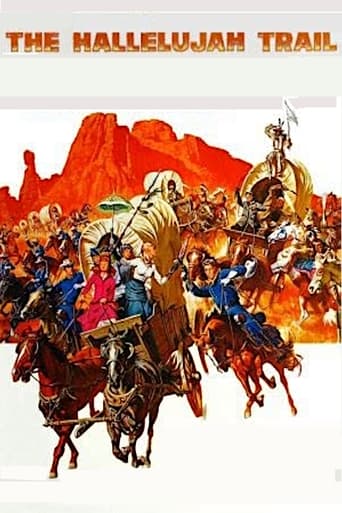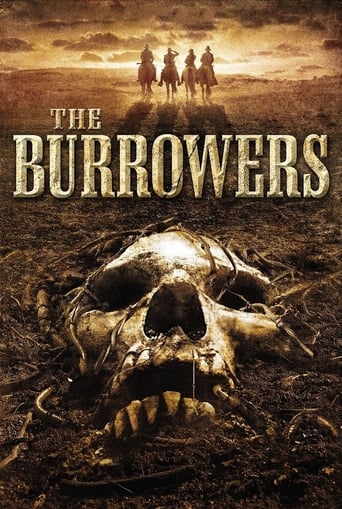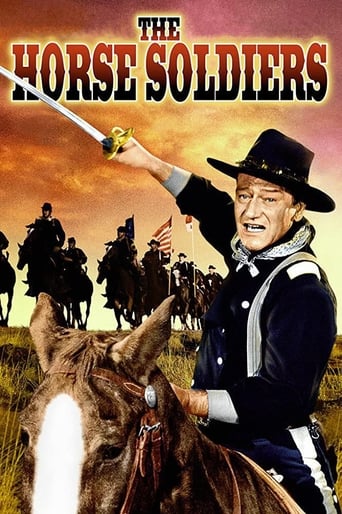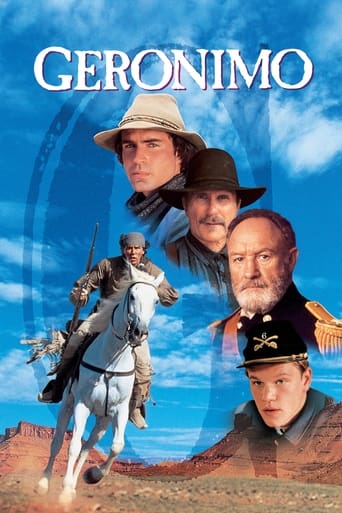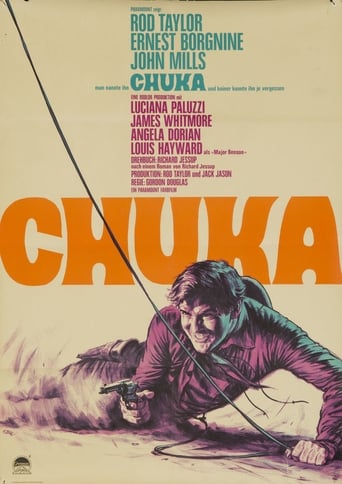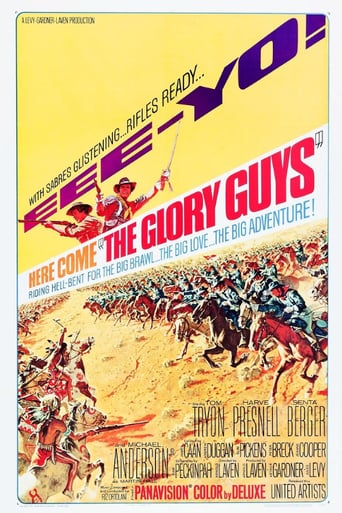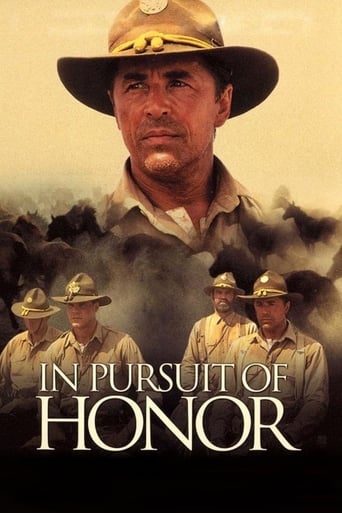
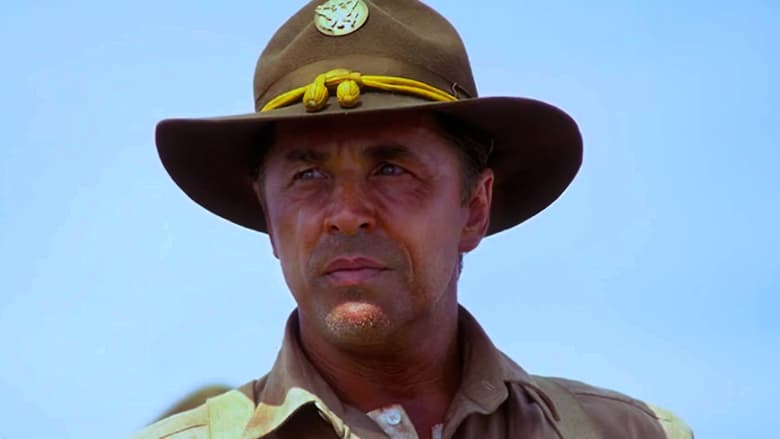
In Pursuit of Honor (1995)
To save a group of horses slated to be destroyed by the US Cavalry, a group of officers rebel and begin a journey towards Canada to save themselves and the mounts.
Watch Trailer
Cast


Similar titles
Reviews
Gabrielle Anwar is unquestionably a fox. She hasn't much chin to her face but otherwise her girlish features are flawless, as if they'd been sculpted by someone at Walt Disney's Studio. And what a background! From Wikipedia: "Anwar was born in Laleham, Surrey. Her mother, Shirley Hills, is an actress, and her father, Tariq Anwar, is an award-winning film producer and editor. Her father was born in Delhi, India, to an Austrian Jewish mother and an Indian father." As one writer described another nymph, "a salad of racial genes." It's hard to know why her career didn't flourish. There's no pronounced weakness in her performance or her delivery. It may just be that her little-girl voice never conveyed a mood or emotion with any conviction. If a four-year old told you something, would you automatically believe it? Here, she's the daughter of Rod Steiger, retiring commander officer of an army cavalry camp in Arizona. The easy-going Steiger is replaced by Bob Gunton, one of those officers you know immediately is going to be a problem because he never smiles, he's ruthless, arrogant, and he has a pencil mustache. The camp has several hundred horses belonging to the US Cavalry. By 1932, horse cavalry was obsolete everywhere except Poland. Yet the men, including top sergeant Don Johnson, are fond of their horses. The horses, after all, have fought beside the men and died beside them. The newly arrived first lieutenant, Craig Sheffer, is a cavalry officer and he loves the horses too. Also, Sheffer and Anwar generate some strictly non-equine vibes between them.The autocratic Gunton calls the men together, informs them brusquely that the cavalry unit will now be merged with the infantry he's brought with him. Furthermore, the men will turn in their sabers and the horses will be replaced by tanks that look like tin toys, the animals to be exterminated by gunfire in a great pit in Mexico. The infantry, ignorant of the bond between cavalry men and their horses, set about machine-gunning the first pitload. It's a shocking scene.The handsome and impetuous Lieutenant Sheffer will have no more of this. With the help of Johnson and three other sergeants, Buxton commandeers the remaining hundred or so horses and takes off with them for the high ground, his justification being that he has never seen any written orders that the horses be disposed of. The infantry major in charge, another bony faced automaton, threatens him with court martial, but Sheffer, his men, and all the horses light out anyway. A pursuit by Gunton's remaining horses, plus tanks, howitzers, and other motor vehicles follows. The trek takes them a thousand miles to the north -- without food. That's okay for the horses. They eat grass.It's a sentimental story, of course. How could it not be? It's about saving a hundred helpless horses. But it's not SLOPPILY sentimental. The story could have been milked for every tear it was worth, yet the writers have minimized the pathos either out of a trust for the audience or out of incompetence. Only one horse has a name, Don Johnson's black horse, Ahab. And Johnson has to shoot him in the forehead when Ahab can no longer walk. It's a monumental opportunity for wallowing in pity -- Johnson making a long, loving speech to his mount, while Ahab nibbles at Johnson's ear and whispers his forgiveness. But -- no such thing. "See you in hell, Ahab," says Johnson, and after a drawn-out pause shoots the animal, which clumps noisily to the ground.If the film is described as a story about heroic soldiers who refuse to allow their mounts to be destroyed, it sounds terrible. But it's better than that.
Everybody liked this film. It was an OK story but not true. An American story filmed in Australia. And it showed. A Colt 1911 semi-automatic pistol but he works the slide before each shot??? Don Johnson has been in enough shoot 'em ups to know better. The Milk River does not form the US Canadian border. They apparently rode right past the Pine Ridge Reservation to reach what reservation, exactly? I expect if I thought a little I could come up with more goofs. So - what part of this movie are we supposed to believe? A tear jerker but please don't take it as a true story. So-from the company who now gives us Game of Thrones. HBO has come a long way.
This is a good movie. The actors do a great job, and the story is dramatic, and tear jerking.It is NOT a true story. There is no evidence anywhere that anything like this ever happened, and the Army has very clear regs on de-commissioning horses. Mass killings are not one of the approved methods. Look how long Chief and Comanche were cared for by the Army for proof of how loved and honored the horses were. So please leave MacArthur alone, he didn't do it because it didn't happen. Enjoy the movie for what it is- a dramatic and moving tale. But don't believe every "based on a true story" tag line you see. "I saw it in a movie based on a true story" is just as reliable as "I read it on the internet." "Titanic" was also based on a true story- there was a boat with that name and it sank, but Jack and Rose were never existed.
I was reminded of this movie again when reading a brief note about a lawyer who, among other things, investigated and prosecuted persons who committed the killing of horses for profit. This movie raises several difficult issues. When is it our duty to act to protect those who are in no position to act for themselves? The story sets up a clear conflict of conscience: Who wouldn't want to prevent the slaughter of 500 innocent horses who have performed the involuntary duty of carrying soldiers into war? Yet, how many of us would have had the courage to completely undo their lives in order to stand for such a principle? The soldiers involved in the rescue of the horses in question chose to actively prevent the carrying out of a direct order, at great risk to themselves. The effect of the telling of the story is to serve as inspiration; stories of courage are more thought-provoking when based on an actual event.I felt this movie was well acted, well told, and at times wrenchingly realistic. I haven't seen its reappearance on cable since it was first shown in the late 90's, but it's worth seeing by a new generation of viewers because its story is timeless.


